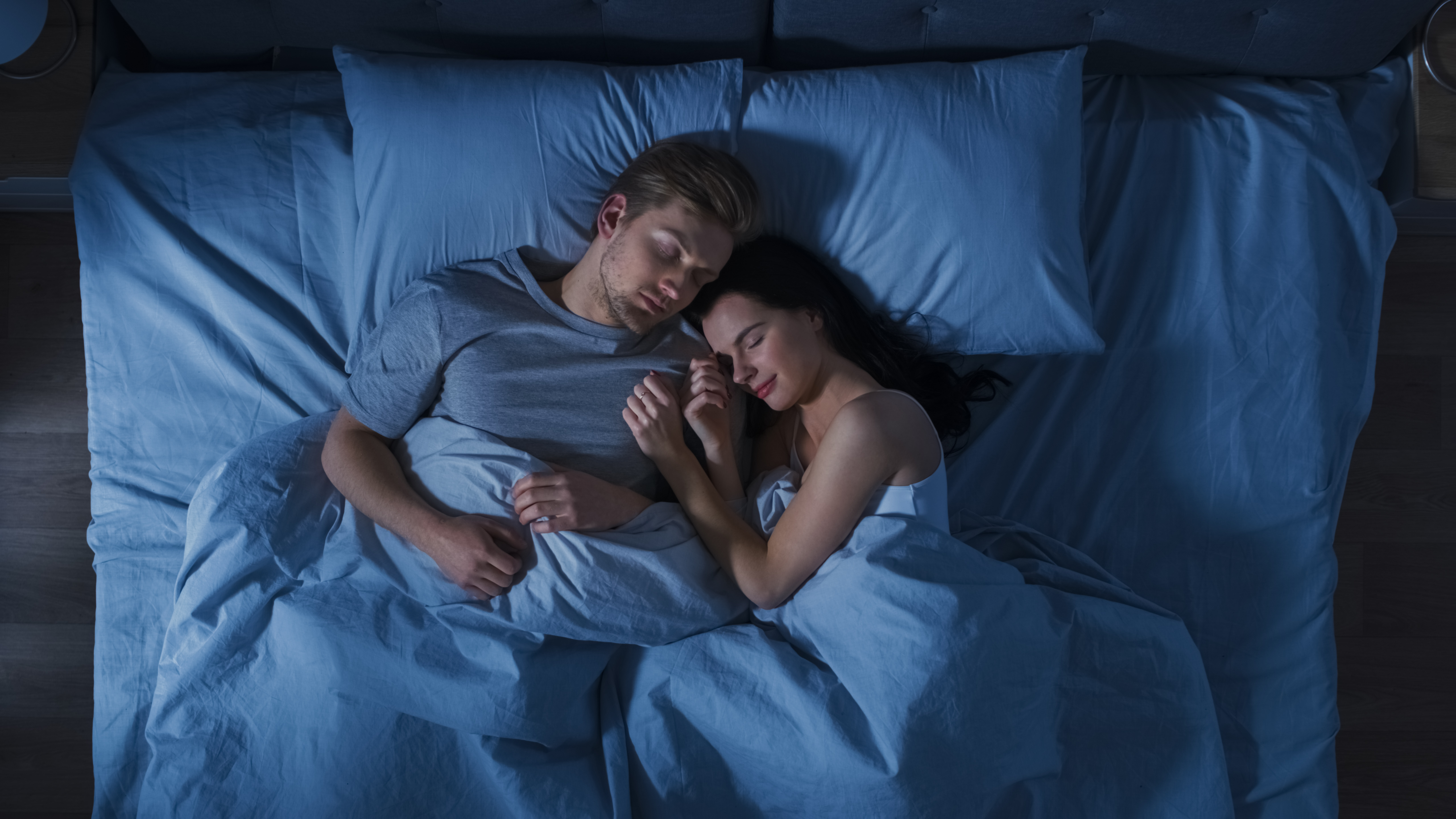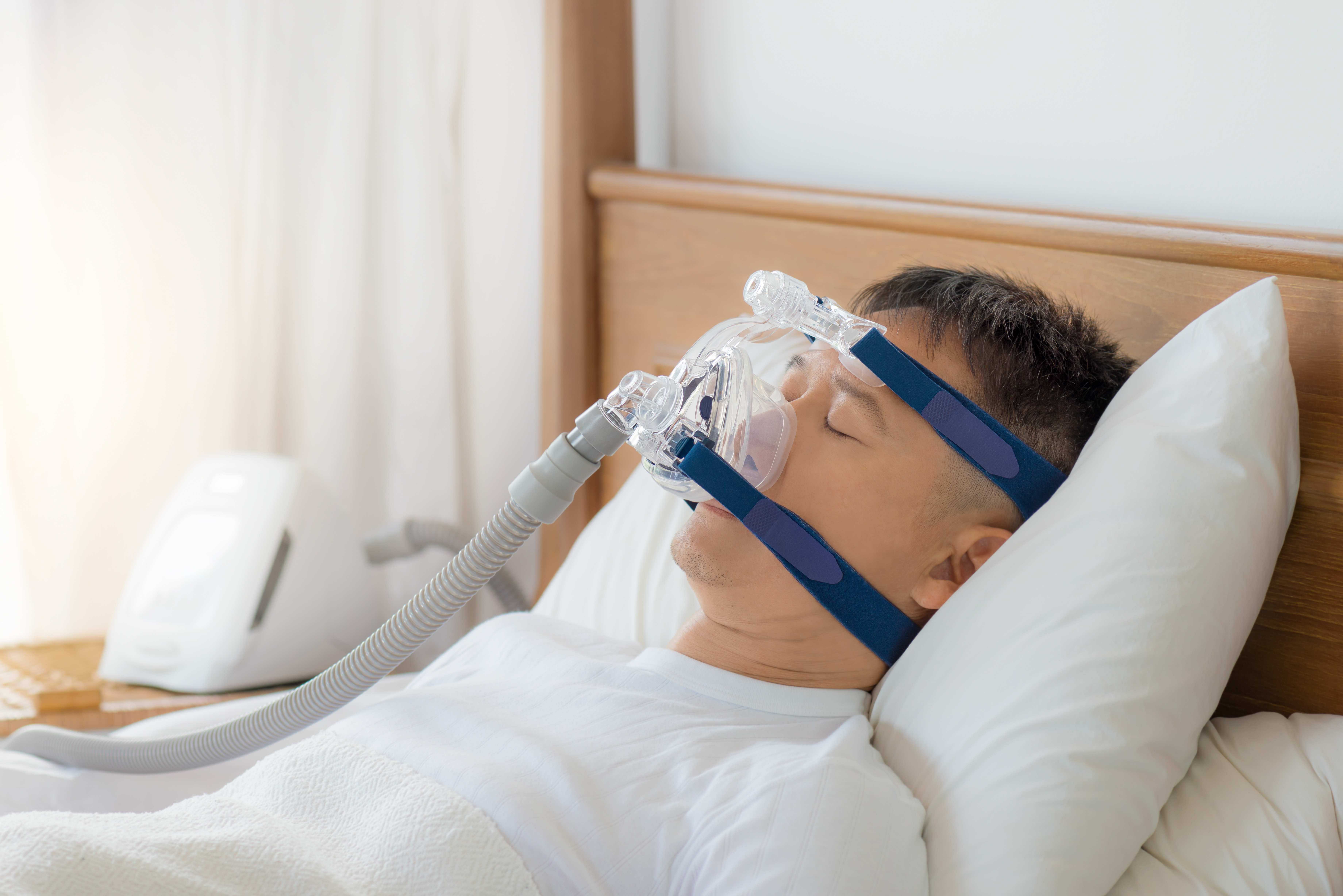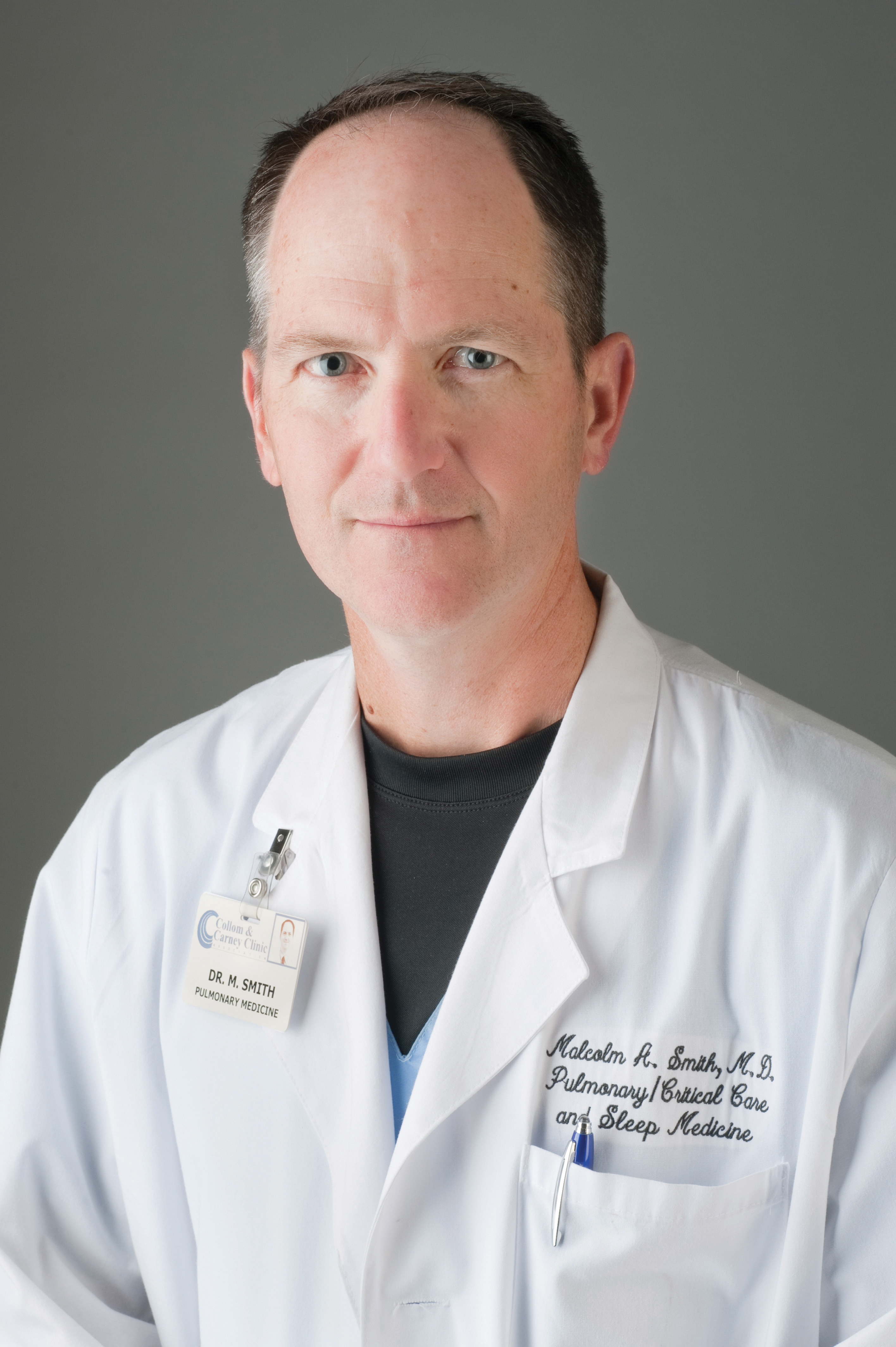
Sleep apnea is a medical condition where you repeatedly stop and start breathing while asleep. There are three main types of sleep apnea.
Yes, there are symptoms. There is also a good chance that your partner has been kept awake by them. Symptoms from sleep apnea include snoring, episodes where you stop breathing while asleep, gasping for air while sleeping, dry mouth in the morning, excessive daytime sleepiness, insomnia and others.
If left untreated, sleep apnea can have serious side effects on your health, including heart disease, high blood pressure, stroke, depression and diabetes. Studies have also shown that sleep apnea could increase a person’s risk of Alzheimer’s disease because of the lack of oxygen to the brain over time.
Once you talk to your primary care provider about your concerns, a sleep study will be scheduled. Collom & Carney offers a nationally recognized Sleep Lab under the direction of Dr. Malcolm A. Smith.
There are various treatments depending on the severity of your sleep apnea. Some are lifestyle changes, such as losing weight. Others involve surgery to remove your tonsils or adenoids. However, the most common treatment is a Continuous Positive Airway Pressure machine, better known as a CPAP machine. You sleep at night with a face mask that has a plastic hose connected to a machine. The machine pushes air into your airway while you sleep, preventing your airway from closing.

Another option is available for people who have trouble sleeping with a CPAP. It’s called the Inspire® Upper Airway Stimulation, and is approved by the Food and Drug Administration. The Inspire® device is implanted under the skin during an outpatient procedure. A lead is used to send a mild stimulation to the nerve that controls the movement of your tongue and other muscles to keep them from blocking your airway while you sleep.



Dr. Malcolm A. Smith is a Collom & Carney Clinic Association pulmonologist who specializes in sleep disorders. Dr. Smith has a number of board certifications from the American Board of Internal Medicine, including Critical Care Medicine, Pulmonary Disease and Sleep Medicine. He is a graduate of Vanderbilt University and the University of Arkansas for Medical Sciences.